One of the most powerful and natural cleaners is vinegar. The acidic properties of vinegar make it a great way to clean almost anything, from kitchen appliances and countertops to bathroom fixtures and floors. However, although vinegar is inexpensive, pure and delicious on salads, it smells like a pickle, and who wants their house to have a vinegar smell?
No worries, though – we have a DIY solution hack for you. Just head to your fruit drawer to solve your smelly pickle problem. Those lemon, lime, clementine, grapefruit and orange peels that you've been putting into your compost pile can serve another purpose first. Instead of throwing away those citrus fruit peels, infuse the peels into white vinegar or apple cider vinegar to add a wonderful citrusy smell and to boost the natural cleaning power of your vinegar. We're here to show you exactly how to make some homemade citrus cleaner.
Video of the Day
Video of the Day
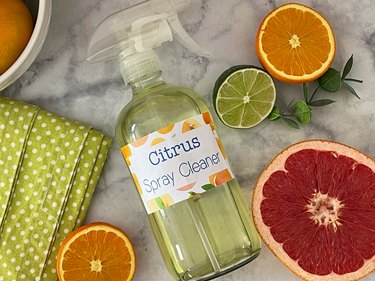
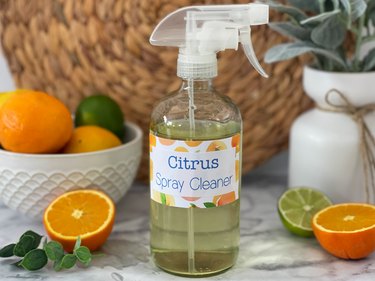
Things You'll Need
Glass jar with lid
Citrus peels (orange, lemon, lime, grapefruit, clementine)
White vinegar
Fine mesh strainer
Funnel
Essential oils (optional)
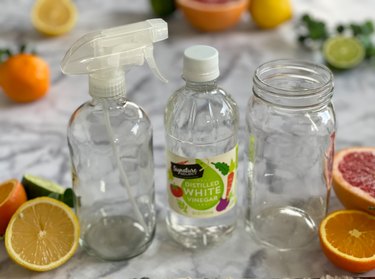
Step 1
When you finish peeling a juicy orange, when you're making lemonade, when you're squeezing a lime into a refreshing beverage or when you're enjoying a sweet grapefruit for breakfast, save the peels and place them in a glass Mason jar. (If you don't happen to have a Mason jar, you can use any kind of glass jar with a tight-fitting lid.)
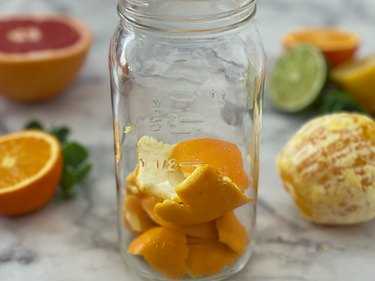
Step 2
When the jar is full of citrus peels, pour white vinegar into the jar over the peels until it is full.
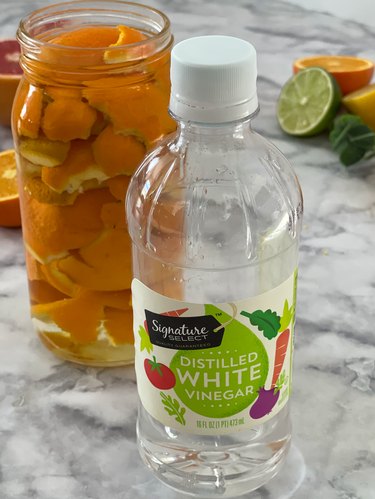
Step 3
Screw a tight-fitting lid onto the jar and place the jar in your refrigerator, up in a cupboard or on your counter if you'd like to enjoy the beauty of it all. Let the jar sit for a couple of weeks until the vinegar is completely infused with the citrus peels. You'll know your citrus cleaner is ready when you open the jar, take a big whiff and smell citrus instead of a pickle. Then, you'll be all set for the next step.
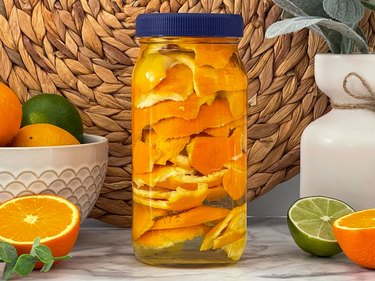
Step 4
If you no longer smell pickles when you open the jar, your cleaner is ready. Pour the citrus vinegar through a fine mesh strainer into a bowl. Instead of throwing the peels into the garbage now, give them a third life and place them in your compost pile or give them to your chickens.
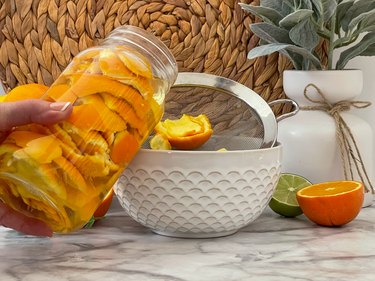
Step 5
Using a funnel, pour the strained, great-smelling natural citrus cleaner into a clean glass spray bottle. You can even make the aroma more intense by adding a few drops of essential oils. Attach the sprayer, create a fun label, crank up some great tunes and cleaning will be fun again.
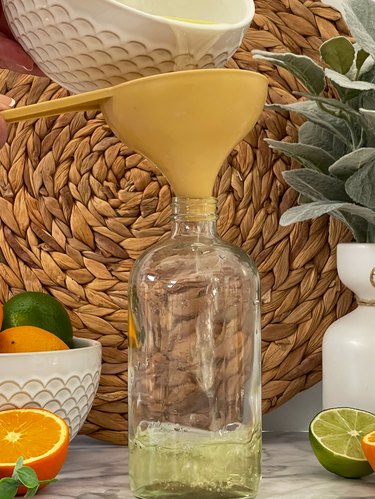
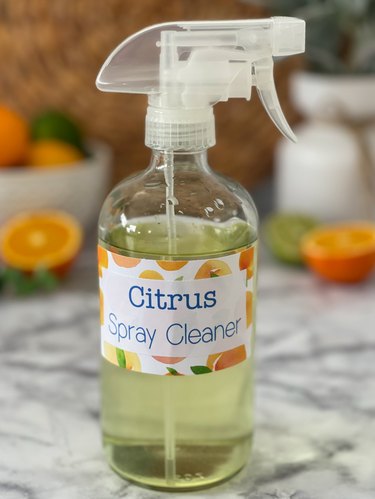
Tip
Although vinegar cleaner is safe to use on stainless steel, floors, dishwashers, microwaves, stove tops, shower curtains, glass shower doors, showerheads, sinks, tubs, mirrors, drains, windows and walls, be careful when using this cleaner on natural stone countertops. Because of the acidic and abrasive properties of vinegar, it might cause pitting.
Even though vinegar can help to eliminate bad smells and will cut through lots of dirt, grease and grime (especially when you mix in a little baking soda and a few lemon peels), it won't kill all bacteria and isn't considered a disinfectant. However, it does have some disinfecting properties. It can kill some of the germs that cause food-borne illnesses. Vinegar is a great homemade cleaner for cleaning and deodorizing, but if you're trying to completely disinfect your home, you'll need to use some of the products that meet EPA standards, like bleach or hydrogen peroxide.